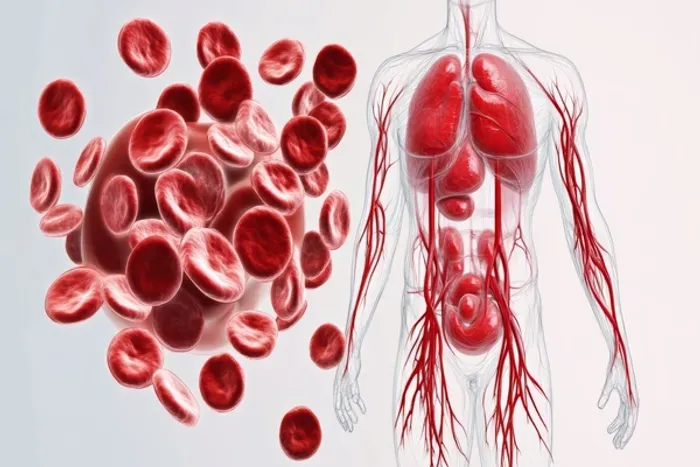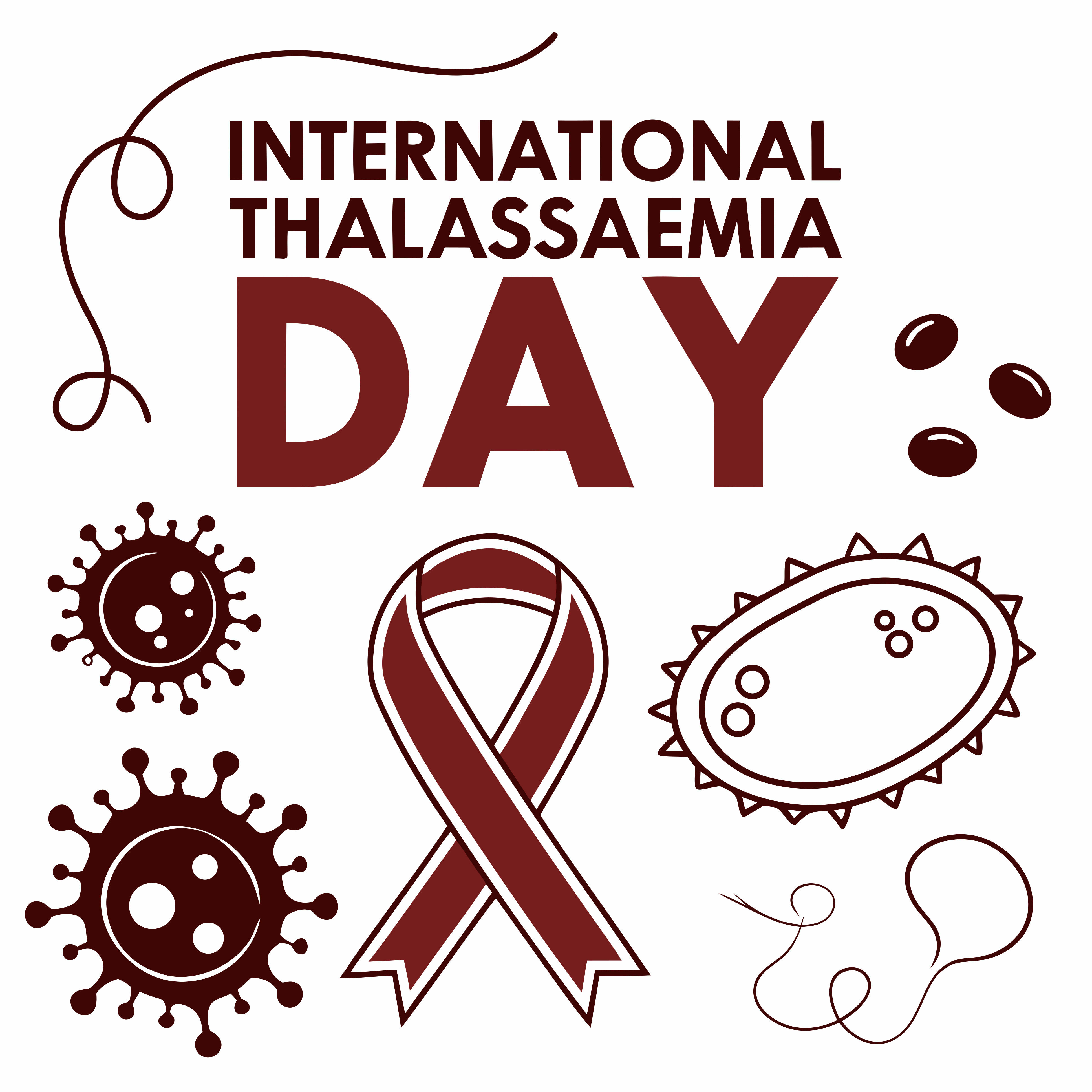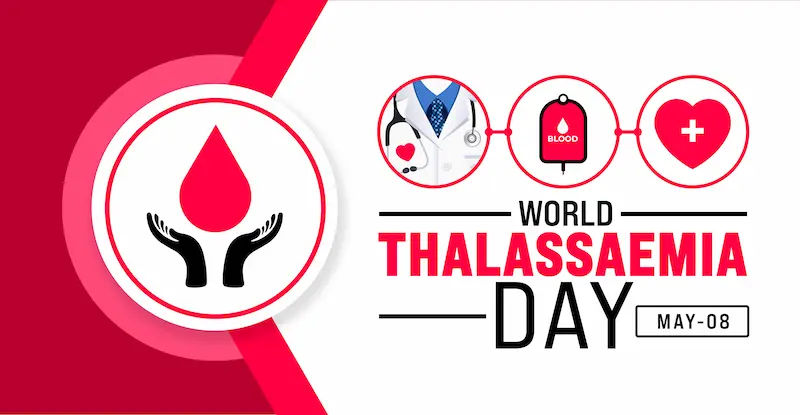Understanding Thalassemia and Its Key Aspects
Know about thalassemia, what it is, its causes, symptoms, risks involved, and how it affects your health. Learn about the diagnosis, treatment options and how to manage thalassemia.


Introduction
Thalassemia is a blood disorder that affects many people worldwide. If you or someone you know has been diagnosed with thalassemia, it’s natural to have questions and concerns. This article aims to provide an understanding of thalassemia, its symptoms, causes, and effective management strategies.
What is Thalassemia?
Thalassemia is an inherited blood disorder that affects the body’s ability to produce haemoglobin—the protein in red blood cells that carries oxygen. When haemoglobin production is impaired, it leads to anaemia (low red blood cell count), causing fatigue and other health complications.
There are two main types of thalassemia:
1. Alpha Thalassemia – Occurs when there is a problem with the alpha globin protein chain.
2. Beta Thalassemia – Occurs when there is a defect in the beta globin protein chain.
Each type has different severity levels, ranging from mild (thalassemia minor) to severe (thalassemia major).
Consult the Best General Practitioner for Personalised Advice
Symptoms of Thalassemia
The symptoms of thalassemia depend on the type and severity of the condition.
Some common signs include:
Fatigue and weakness (due to anaemia)
Pale or yellowish skin
Dark urine
Slow growth in children
Bone deformities (especially in severe cases)
Enlarged spleen or liver
Frequent infections
People with thalassemia minor may have mild or no symptoms, while those with thalassemia major may experience severe symptoms requiring regular medical care.
Causes and Risk Factors
Thalassemia is an inherited condition, meaning it is passed down from parents to children through genes. If both parents carry the thalassemia gene, their child has a higher chance of inheriting a severe form.
Who is at Risk?
People with a family history of thalassemia
Individuals from Mediterranean, South Asian, African, and Middle Eastern descent (where thalassemia is more common)
How does Thalassemia affect health?
Since thalassemia reduces healthy red blood cells, it can lead to:
Chronic anaemia – Persistent tiredness and weakness
Iron overload – Frequent blood transfusions can cause excess iron buildup, damaging organs like the heart and liver
Bone problems – Thinning bones and deformities due to increased bone marrow activity
Heart and liver complications – Untreated thalassemia can lead to heart failure or liver disease
Diagnosis and Treatment
If thalassemia is suspected, doctors may recommend:
Blood tests (Complete Blood Count, Haemoglobin Electrophoresis)
Genetic testing (to confirm the type of thalassemia)
Treatment Options
The treatment options:
Blood transfusions (for severe cases)
Iron chelation therapy (to remove excess iron from the body)
Folic acid supplements (to support red blood cell production)
Bone marrow transplant (a potential cure for some patients)
Lifestyle and Dietary Tips for Managing Thalassemia
While medical treatment is essential, certain lifestyle changes can help improve quality of life:
Dietary Recommendations:
Iron-rich foods in moderation (if not on regular transfusions)
Calcium and vitamin D (for bone health)
Avoid alcohol and excess iron supplements (unless prescribed)
Healthy Habits:
Regular exercise (light activities like walking or yoga)
Stay hydrated (to prevent complications)
Avoid infections (practice good hygiene, get vaccinated)
When to See a Doctor?
If you experience persistent fatigue, paleness, or other symptoms, consult a doctor. Early diagnosis helps in better management.
Final Thoughts
Thalassemia is a lifelong condition, but with the right treatment and care, individuals can lead healthy and fulfilling lives. If you or a loved one has thalassemia, staying informed and working closely with healthcare providers is key to managing the condition well.
Consult the Best General Practitioner for Personalised Advice
Consult the Best General Practitioner for Personalised Advice

Dr. Anand Ravi
General Physician
2 Years • MBBS
Bengaluru
PRESTIGE SHANTHINIKETAN - SOCIETY CLINIC, Bengaluru

Dr. Vivek D
General Physician
4 Years • MBBS
Bengaluru
PRESTIGE SHANTHINIKETAN - SOCIETY CLINIC, Bengaluru

Dr Syed Mateen Pasha
General Physician
2 Years • MBBS
Bengaluru
PRESTIGE SHANTHINIKETAN - SOCIETY CLINIC, Bengaluru

Dr. Syed Ismail Ali
General Practitioner
7 Years • MBBS
Hyderabad
Apollo 24|7 Clinic, Hyderabad

Dr. Madhuri Sai Sreepada
General Practitioner
9 Years • MBBS
Hyderabad
BRIGHT SMILES MEDICARE & DENTAL CARE, Hyderabad

.webp)


